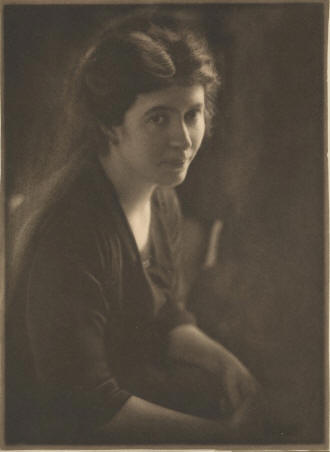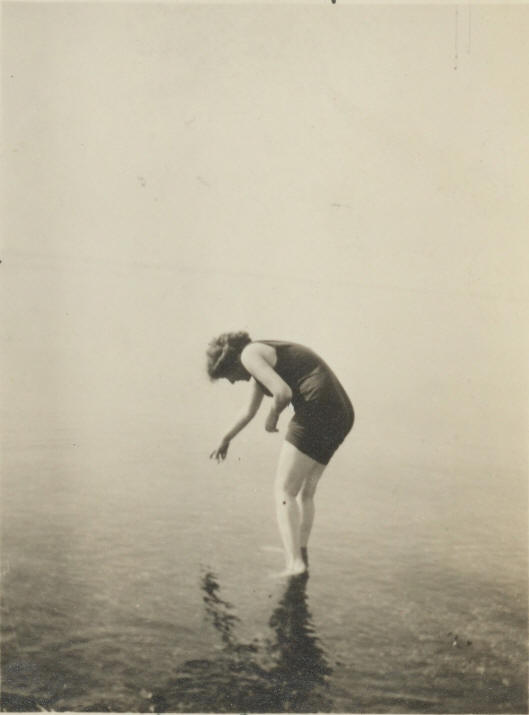

Queer Places:
88 Grove St, New York, NY 10014
215 2nd Ave, New York, NY 10003
 Rose
Harriet Pastor Stokes (née Wieslander; July 18, 1879 – June 20, 1933) was an
American socialist activist, writer, birth control advocate, and feminist. She
was a member of the Heterodoxy Club. A friend of
Emma Goldman’s, they corresponded when
Goldman was in prison but Stokes suggested Goldman be burned in effigy for her
early criticism of Bolsheviks.
Rose
Harriet Pastor Stokes (née Wieslander; July 18, 1879 – June 20, 1933) was an
American socialist activist, writer, birth control advocate, and feminist. She
was a member of the Heterodoxy Club. A friend of
Emma Goldman’s, they corresponded when
Goldman was in prison but Stokes suggested Goldman be burned in effigy for her
early criticism of Bolsheviks.
Stokes was a figure of some public notoriety after her 1905 marriage to Episcopal millionaire J. G. Phelps Stokes, a member of elite New York society, who supported the settlements in New York. Together they joined the Socialist Party. Pastor Stokes continued to be active in labor politics and women's issues, including promoting access to birth control, which was highly controversial at the time.
In July 1903, Pastor was assigned to interview J. G. Phelps Stokes, known by friends as "Graham," a prominent, wealthy, upper-class businessman who supported a settlement house on the Lower East Side. He had gained media attention because of his high social status and his charitable work for the needy. Descended from families prominent since the colonial history of New England, Stokes was a railway president, Episcopalian, and a society figure.[4] He gave up his mansion at 299 Madison Avenue to be closer to the work he found most satisfying, that of social projects. Stokes moved to the University Settlement on the Lower East Side, which ministered to the masses of new immigrants from Europe. It was near the Jewish Daily News. Pastor praised Stokes' ideals in her article.


Soon Pastor also became active in work of University Settlement. Her friendship with Stokes deepened, and in early 1905 they announced their engagement. The couple were married in July 1905 and joined the Socialist Party of America together soon thereafter. He was Episcopalian; they did not practice either religion but devoted themselves to Socialism.[4] They lived at 88 Grove Street.
In September 1905, together with Upton Sinclair, Jack London, Clarence Darrow, and Florence Kelley, Graham Phelps Stokes helped found the Intercollegiate Socialist Society (ISS) to encourage study and discussion of socialism in colleges. Over the next decade, both Graham and Rose lectured frequently on socialist themes on behalf of the ISS on college campuses around America.
In 1919, Pastor Stokes was a founding member of the Communist Party of America and helped develop it into the 1930s. In addition to her writing on politics, she wrote poetry and plays; one was produced in 1916 by the Washington Square Players. She started her autobiography in 1924 but had not completed it at her death; it was published in 1992.
Graham had been embarrassed before World War I by her public activism related to birth control, not widely accepted, and labor politics. Some of his family were among those who were quite opposed to her politics. With increasing strain between them, in 1925 Graham brought a petition for divorce in Nyack, New York, on grounds of "misconduct by his wife". He won a decree. Pastor Stokes issued a statement denouncing New York's divorce laws, and saying that she and her husband had lived as "friendly enemies" for some time. She said she would cherish her freedom.
By 1929 Pastor Stokes had remarried. Her second husband was Jerome Isaac Romain, a Polish-Russian Jewish immigrant and a language teacher who was seventeen years younger than she. He was an active member of the Communist Party and became its cultural chief in New York. He later changed his name to Victor Jeremy Jerome, called V.J., serving as editor for decades for Political Affairs. The couple lived at 215 Second Avenue in the Lower East Side. But Pastor Stokes also kept her cottage in Westport, and frequently lived there.[7]
Pastor Stokes was diagnosed with breast cancer in 1930. In 1933 she went to Germany for radiation therapy. In April 1933 friends collected funds for hospital expenses. Pastor Stokes entered Municipal Hospital in Frankfurt, Germany, on April 15, where she was operated on for cancer by Professor Vito Schmiden. While under treatment, she died in the hospital on June 20, 1933, aged 53. Her body was cremated and the ashes sent to New York, where a memorial service was held at Webster Hall.[5]
AAt the time of death, Pastor Stokes was working on her autobiography, which she had started in 1924. Before her death, she had sent numerous documents related to her writing to her agents in the United States. She asked her friend Samuel Ornitz, also a communist and a writer, to complete it, sharing her views with him.[1]
He finally abandoned the work in 1937.[1] During the 1950s, he was among the Hollywood Ten, blacklisted after their refusal to testify to the House Un-American Activities Committee (HUAC) during the Joseph McCarthy era of a Red scare.[1]
HHer unfinished autobiography was published posthumously in 1992 by an academic press. Pastor Stokes' personal papers are held by New York University, where they are held at the Tamiment Library and Robert F. Wagner Archives, and at Yale University in New Haven, Connecticut.
My published books: